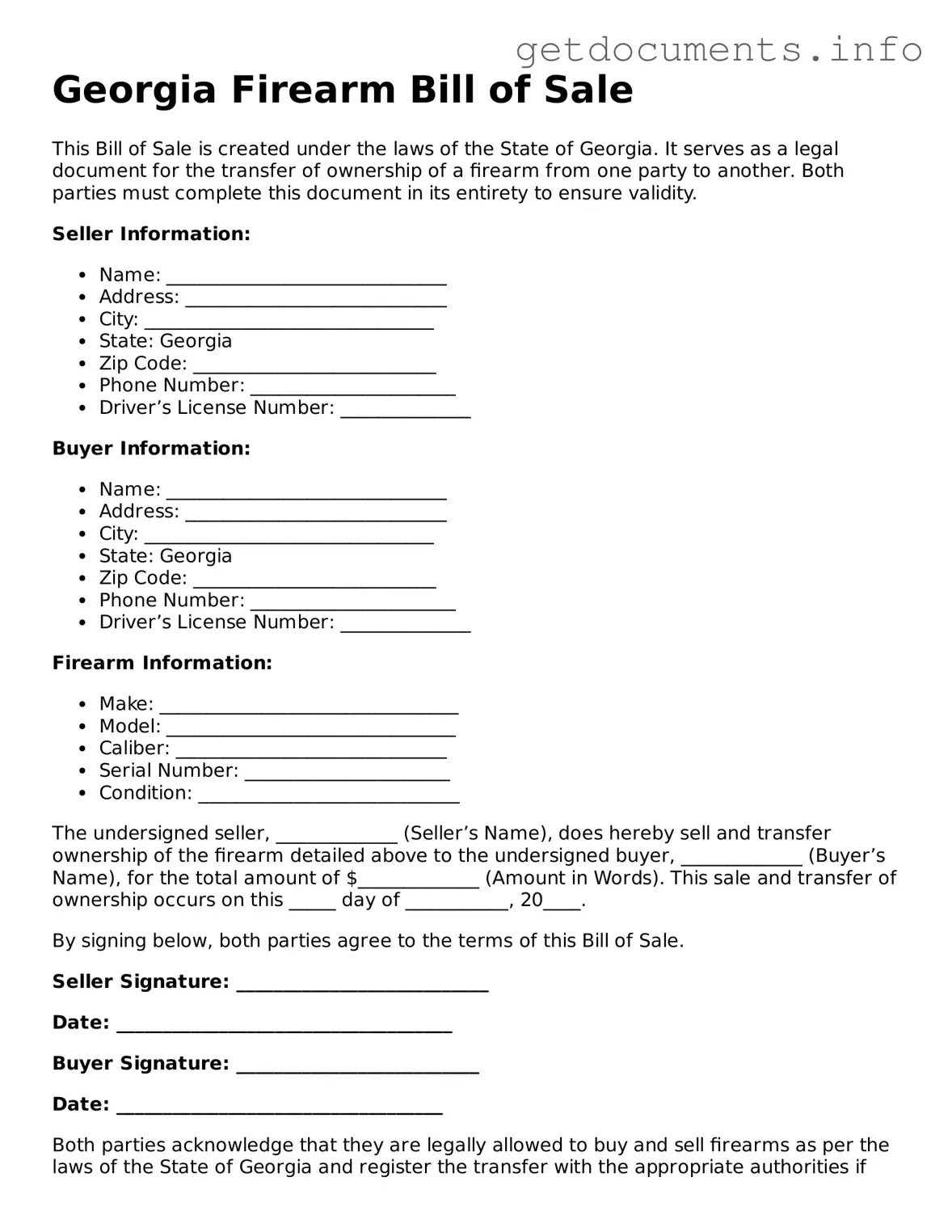Free Firearm Bill of Sale Template for Georgia
The Georgia Firearm Bill of Sale form is a legal document that serves as proof of the sale and transfer of a firearm between two parties in Georgia. This form outlines essential details such as the buyer's and seller's information, the firearm's description, and the date of the transaction. Completing this form is crucial for ensuring that the transfer is conducted legally and transparently.
To fill out the form, click the button below.
Access Firearm Bill of Sale Editor

Free Firearm Bill of Sale Template for Georgia
Access Firearm Bill of Sale Editor
Got places to be? Complete the form fast
Fill out Firearm Bill of Sale online and avoid printing or scanning.
Access Firearm Bill of Sale Editor
or
⇩ PDF File
